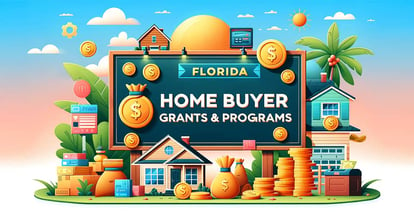What to Know About Reverse Mortgages for Condos
If you are an older adult, you have the option of obtaining a reverse mortgage for a condo. This type of mortgage allows homeowners aged 62 or older to access the equity in their home while still living in it and retaining ownership.
The vast majority of reverse mortgages available are known as home equity conversion mortgages (HECMs). These HECMs are backed by the Federal Housing Administration (FHA) and are offered by FHA-approved lenders.
To qualify for an HECM, there are stringent borrower requirements, and specific rules dictate which properties are eligible.
The following rules pertain to HECMs; if you have a different type of loan, reach out to your lender or loan servicer for any inquiries or issues you may have.
Table of Contents
- Key Takeaways
- Reverse Mortgage (HECM) Condo Requirements
- Reverse Mortgage Borrower Requirements
- Are there any Non-FHA reverse mortgages for condo owners?
- Eligibility Requirements for Non-FHA Reverse Mortgages
- HECM Property Eligibility Requirements
- Ineligible Reverse Mortgage Properties
- How Much Can You Borrow on a Reverse Mortgage?
- Does FHA need to approve my condo?
- How do I find out if my condo is on FHA’s approval?
- Bottom Line
Key Takeaways
Changes in condominium rules and HUD programs in recent years have made it more challenging for senior borrowers to obtain reverse mortgages in condominium projects.
Even if a senior borrower meets the age requirements and doesn't owe anything on their unit, they may still face difficulties getting a reverse mortgage due to the project's status or the project manager's cooperation.
Homeowners looking to obtain a reverse mortgage for an existing condominium should ensure that the project is on the current HUD-approved list. If not, they should check with their HOA to see if they have applied for approval.
There are several key requirements for condominium project approval, including budget considerations, owner-occupied ratios, delinquent HOA dues, insurance requirements, and pending litigations that may affect project approval.

Reverse Mortgage (HECM) Condo Requirements
To get a reverse mortgage for a condominium, certain requirements need to be met:
-
Adequate Reserves - The condominium project must have enough money set aside in reserves to cover future repairs and replacements. This amount should be at least 20% of the budget.
-
No Ongoing Lawsuits - The project should not be involved in any current litigation. Only minor issues covered by insurance are acceptable.
-
Insurance Coverage - The condominium must have proper hazard, liability, and flood insurance. This protects unit owners from potential financial losses.
-
Delinquent Dues - A maximum of 15% of unit owners can be behind on their association dues by 30 days or more. In some cases, HUD may consider up to 20% with a waiver.
-
Owner-Occupancy - Generally, at least 50% of the units must be occupied by the owners as their primary residences. Exceptions may apply for smaller projects.
- Pending Litigation - HUD will review any ongoing lawsuits involving the project to assess its financial stability.
If you're considering a reverse mortgage for a condo, make sure the condominium meets these requirements to increase the chances of approval.
Reverse Mortgage Borrower Requirements
To be eligible for an HECM, which is the most common form of reverse mortgage, you need to meet the following criteria:
-
Reach a minimum age of 62 years old.
-
Possess full ownership of your property or hold at least 50% equity in it.
-
Reside in the home as your primary place of residence.
-
Not have any outstanding federal debt, such as taxes and student loans.
-
Demonstrate the financial capacity to cover property taxes, homeowners insurance, homeowners association (HOA) fees, and similar expenses.
- Take part in a consumer information session conducted by an HECM counselor approved by the U.S. Department of Housing and Urban Development (HUD).
Additionally, your lender will verify your income, assets, monthly living expenses, and credit history. They will also ensure that you have a positive track record of timely payments for real estate taxes and hazard/flood insurance premiums.
Are there any Non-FHA reverse mortgages for condo owners?
Indeed, there are Non-FHA reverse mortgage options available for condo owners.
These alternative programs, often referred to as private or proprietary reverse mortgage programs, offer viable alternatives to the FHA-backed Home Equity Conversion Mortgage (HECM) and do not require HUD approval for participation.
The allure of these private reverse mortgage programs lies in their flexibility and unique criteria, which can vary significantly based on the investor or lending institution offering them.
Unlike the standardized FHA process, private programs have the liberty to establish their own set of rules and guidelines, tailored to meet specific market demands and risk appetites.
Some of these private programs closely mirror the FHA process, adhering to many of the same principles and eligibility criteria. They may adopt a cautious approach and apply similar standards when assessing condo projects for approval.
However, being outside the FHA's purview, they can exercise greater discretion in approving projects that may not fully meet the stringent FHA guidelines.
It's worth noting that private reverse mortgage programs can be especially advantageous for condo owners whose properties might not qualify for FHA approval.
This could be due to factors such as the condo's legal structure, the homeowner association's documentation, or specific project-related details that fall outside the scope of FHA's rigid requirements.
Eligibility Requirements for Non-FHA Reverse Mortgages
These private or proprietary reverse mortgage programs offer unique criteria and flexibility, providing viable alternatives for condo owners who may not qualify for an FHA-backed HECM or prefer non-FHA options.
Differences Between Non-FHA and FHA-Backed Reverse Mortgages:
Approval Process
One of the significant distinctions between non-FHA and FHA-backed reverse mortgages lies in the approval process.
FHA-backed HECMs require condominium projects to undergo a rigorous approval process set by the Federal Housing Administration.
On the other hand, non-FHA programs can establish their own set of rules and guidelines, tailored to meet specific market demands and risk appetites.
This flexibility allows for more discretion in approving projects that may not fully meet the stringent FHA requirements.
Eligibility Criteria
Non-FHA reverse mortgage programs may have different eligibility criteria compared to FHA-backed HECMs.
These criteria could include specific age requirements, property value thresholds, and financial qualifications.
Condo owners who do not meet the FHA's strict guidelines may find that non-FHA options open up new possibilities for accessing their home's equity.
Property Types
FHA-backed HECMs have specific guidelines for eligible property types, including condos.
While most condos can qualify for an FHA-backed reverse mortgage, there may be cases where a condo fails to meet FHA's requirements.
In such instances, non-FHA programs can be especially advantageous, as they might have more lenient guidelines or accept different property types.
HECM Property Eligibility Requirements
For a property to be eligible for a reverse mortgage, it must meet the minimum property requirements set by the FHA (Federal Housing Administration).
These guidelines primarily focus on three key areas:
-
Safety - The property must provide a safe and healthy environment for its occupants.
-
Security - It should be a secure investment, maintaining its value throughout the loan period.
- Soundness - The home must be structurally sound, free from any physical deficiencies that could affect its integrity.
It's important to note that a reverse mortgage can only be obtained on a property that serves as your primary residence, not on a second home or vacation home.
Provided that they meet the minimum property standards, the following types of properties are eligible for HECMs:
-
Single-family homes
-
Two- to four-unit properties (e.g., duplex, triplex, or quadruplex), provided that one of the units is your primary residence
-
Townhouses
-
Properties in planned unit developments (PUDs)
-
Manufactured homes (constructed after June 15, 1976)
- Condominiums
It's worth mentioning that for condominiums, the responsibility for maintaining flood insurance lies with the homeowners association (HOA), not the individual owner, especially for buildings located in flood hazard areas.
While some condominiums may not qualify for a reverse mortgage, the majority of them do. You can find FHA-approved condominium projects by location, name, or status on the HUD website.
Newly constructed properties can be eligible for a reverse mortgage only if they have received a certificate of occupancy or its equivalent from local authorities.
Ineligible Reverse Mortgage Properties
Although many types of homes can qualify for a reverse mortgage, there are specific properties that are not eligible, such as:
-
Boarding houses.
-
Bed and breakfast establishments.
-
Manufactured homes constructed before June 15, 1976.
- Manufactured homes without HUD certification labels or a permanent foundation.
It is essential to be aware that mortgage lending discrimination is unlawful.
If you believe you have experienced discrimination based on factors such as race, religion, sex, marital status, use of public assistance, national origin, disability, or age, you have the right to file a complaint with either the Consumer Financial Protection Bureau or HUD.
How Much Can You Borrow on a Reverse Mortgage?
The borrowing amount in a reverse mortgage is determined by the age of the youngest borrower (or eligible non-borrowing spouse), the prevailing interest rate, and the lower value between the appraised value of the home and $970,800, which was the Federal Housing Administration (FHA) limit for home equity conversion mortgages (HECMs) in 2022.
If your home holds a higher value and you wish to access more equity, you may explore a proprietary (jumbo) reverse mortgage.
Nevertheless, it is essential to consider that proprietary loans typically come with higher interest rates and fewer consumer protections compared to FHA-insured HECMs.
Does FHA need to approve my condo?
To achieve full approval for a Condo Project, it must undergo HUD's approval process. Once HUD grants approval, it remains valid for a period of 2 years before it expires. After this time, the project must go through a recertification process every two years to maintain approval.
In addition to the standard approval process for the entire project, HUD offers a separate procedure called "Single Unit Approval," allowing individual homeowners to apply for approval.
During this process, the homeowner provides the same documents that the entire project would typically submit for approval. Single Unit Approval is designed for homeowners who reside in a project seeking only partial FHA approval.
It's important to note that a Single Unit Approval is specific to the homeowner and applies solely to the transaction for which it was granted.
Unlike when HUD approves the entire project, there won't be additional qualifying restrictions on the loan for the approved homeowner.
How do I find out if my condo is on FHA’s approval?
If you are wondering whether your condominium project has obtained approval from the Federal Housing Administration (FHA), there are straightforward steps you can take to find out.
The HUD website is a reliable resource for discovering if your condo is already on the list of HUD-approved projects.
To begin the search, navigate to the HUD website and access the relevant section for condominium approvals.
You will typically find an option to search for approved projects by various parameters, such as state, county, or zip code. Input the appropriate details for your location and click the "send" or "search" button to initiate the inquiry.
Once you complete the search, the HUD website will provide you with a comprehensive list of all the condominium projects that have received approval within your specified zip code or area.
This list is designed to be inclusive, so even if your project's legal name is slightly different or listed under a variation due to the managing Homeowners Association (HOA), it should still appear on the HUD's list if it has indeed obtained approval.
Bottom Line
The majority of reverse mortgages are home equity conversion mortgages (HECMs) backed by the Federal Housing Administration (FHA).
However, recent changes in condominium rules and HUD programs have made it more challenging for seniors to obtain reverse mortgages for condos.
To qualify, the condo project must meet specific requirements, including adequate reserves, no ongoing lawsuits, proper insurance coverage, limited delinquent dues, and a certain owner-occupancy ratio.
While there are FHA-approved options, there are also private reverse mortgage programs available for condo owners that do not require HUD approval. Check if your condo is on the FHA's approved list through the HUD website.
Navigating reverse mortgages for condos can be complex. For expert guidance, reach out to MakeFloridaYourHome today.
Our team is here to assist you every step of the way. Don't miss out on the benefits of a reverse mortgage for your condo - contact us now!
With over 50 years of mortgage industry experience, we are here to help you achieve the American dream of owning a home. We strive to provide the best education before, during, and after you buy a home. Our advice is based on experience with Phil Ganz and Team closing over One billion dollars and helping countless families.

About Author - Phil Ganz
Phil Ganz has over 20+ years of experience in the residential financing space. With over a billion dollars of funded loans, Phil helps homebuyers configure the perfect mortgage plan. Whether it's your first home, a complex multiple-property purchase, or anything in between, Phil has the experience to help you achieve your goals.


 By
By  Edited by
Edited by 






